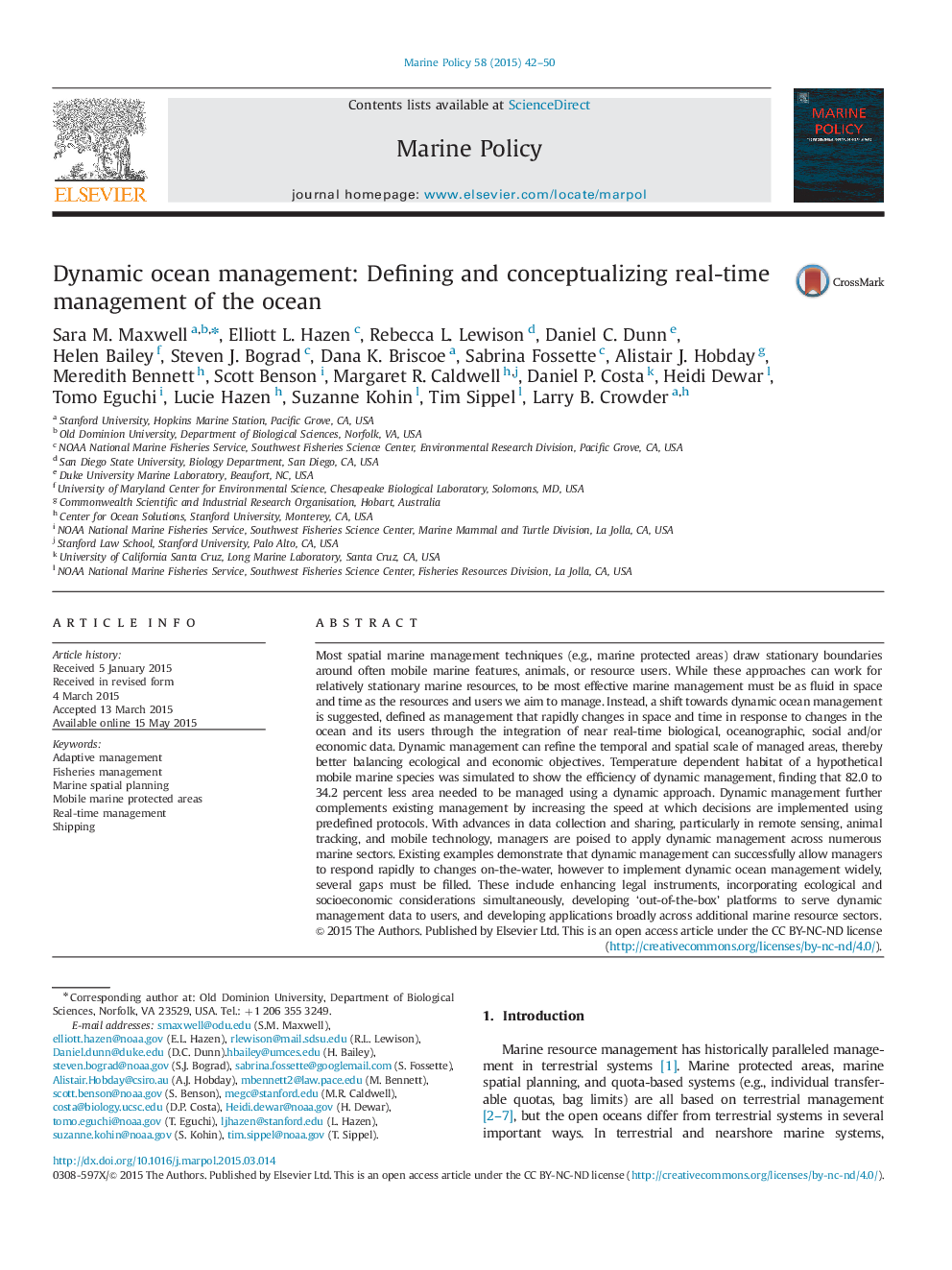ترجمه فارسی عنوان مقاله
مدیریت اقیانوس پویا : تعریف و مفهوم مدیریت زمان واقعی اقیانوس
عنوان انگلیسی
Dynamic ocean management: Defining and conceptualizing real-time management of the ocean
| کد مقاله | سال انتشار | تعداد صفحات مقاله انگلیسی |
|---|---|---|
| 47036 | 2015 | 9 صفحه PDF |
منبع

Publisher : Elsevier - Science Direct (الزویر - ساینس دایرکت)
Journal : Marine Policy, Volume 58, August 2015, Pages 42–50
ترجمه کلمات کلیدی
مدیریت تطبیقی - مدیریت شیلات - برنامه ریزی فضایی دریایی - مناطق حفاظت شده دریایی همراه - مدیریت زمان واقعی - حمل دریایی
کلمات کلیدی انگلیسی
Adaptive management; Fisheries management; Marine spatial planning; Mobile marine protected areas; Real-time management; Shipping

